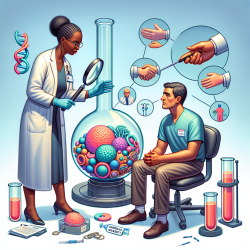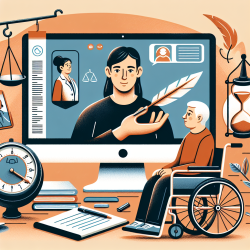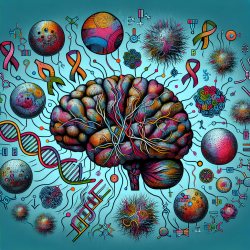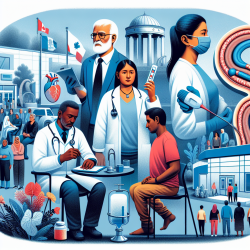The Emergence of Stem Cell Counselors: A New Frontier in Patient Support
In the rapidly evolving field of stem cell research, the need for specialized support for patients considering participation in clinical trials has become increasingly apparent. The research article, "The Case for Stem Cell Counselors," by Christopher Thomas Scott, explores the potential benefits of establishing a dedicated profession of stem cell counselors to guide patients through the complexities of clinical trials.
Stem cell science has made significant strides over the past decade, transitioning from laboratory research to clinical applications. With numerous clinical trials underway, the demand for professionals who can clearly explain the risks and benefits of stem cell transplants is growing. This is where stem cell counselors come into play, offering a bridge between complex scientific information and patient understanding.
Why Stem Cell Counselors Are Needed
The role of stem cell counselors is crucial for several reasons:
- Communicating Specialized Information: Counselors can provide personalized information that helps patients understand clinical trials, assess scientific evidence, and make informed decisions.
- Guarding Against Stem Cell Tourism: They can educate patients about the risks of seeking unproven treatments abroad, often marketed directly to consumers online.
- Bolstering Informed Consent: Counselors can enhance the informed consent process by ensuring patients comprehend the risks and benefits associated with trials.
Developing a Stem Cell Counseling Curriculum
To prepare professionals for this emerging role, a comprehensive curriculum is essential. Scott proposes a curriculum that includes:
- Basic and Clinical Sciences: Understanding the fundamentals of stem cell biology and current translational research.
- Bioethics and ELSI Training: Covering ethical, legal, and social implications of stem cell research.
- Psychosocial Techniques: Training in communication and counseling skills to support patient autonomy and informed decision-making.
Such a curriculum could be offered as a certificate or a master's degree program, with ongoing education to keep counselors updated on the latest developments in the field.
Challenges and Future Directions
While the establishment of a stem cell counseling profession is promising, it faces challenges such as securing funding and integrating into existing healthcare systems. However, the potential benefits for patients, clinicians, and the broader public are significant. By providing a structured support system, stem cell counselors can enhance patient experiences and outcomes in clinical trials.
For practitioners in the field, embracing the concept of stem cell counseling can improve patient interactions and ensure ethical standards are upheld. Further research and development of this profession could lead to better patient education, increased trial participation, and more successful outcomes.
To read the original research paper, please follow this link: The Case for Stem Cell Counselors.










